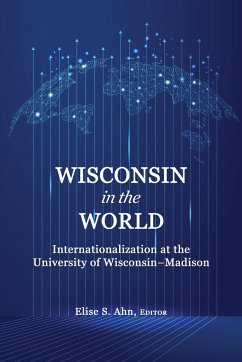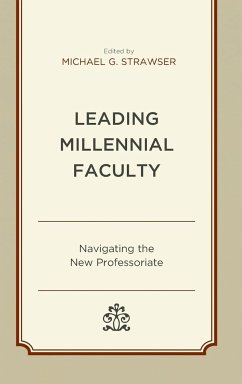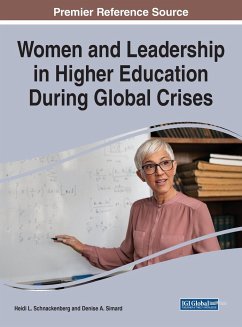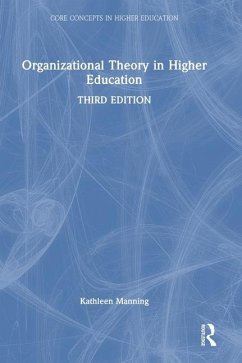
Wisconsin in the World
Internationalization at the University of Wisconsin-Madison
Herausgeber: Ahn, Elise S.
Versandkostenfrei!
Versandfertig in 1-2 Wochen
125,99 €
inkl. MwSt.
Weitere Ausgaben:

PAYBACK Punkte
63 °P sammeln!
During the 2020 and 2021 phases of the global COVID-19 pandemic, there was significant prognostication regarding what internationalization in higher education would look like in its aftermath. Within the field of international education, many stated the need to reimagine internationalization in and of higher education in the face of severe budget cuts, restrictions on travel, and increased government protectionism in the face of growing nationalistic populism globally to name a few challenges. Absent from many of those discussions, however, were the voices of many leader-practitioners who have...
During the 2020 and 2021 phases of the global COVID-19 pandemic, there was significant prognostication regarding what internationalization in higher education would look like in its aftermath. Within the field of international education, many stated the need to reimagine internationalization in and of higher education in the face of severe budget cuts, restrictions on travel, and increased government protectionism in the face of growing nationalistic populism globally to name a few challenges. Absent from many of those discussions, however, were the voices of many leader-practitioners who have had to think flexibly about internationalization in higher education in order to sustain and grow programs throughout the last 20 years despite numerous exogenous factors, e.g., earlier economic recessions and viral outbreaks, along with endogenous factors like internal leadership transitions and institutional reorganizations. Wisconsin in the World explores how internationalization at the University of Wisconsin-Madison (UW) has been a decades-long, ongoing endeavor. Against that backdrop, the various chapters also provide a snapshot of how people across the UW campus were reflecting on their work amidst the COVID-19 pandemic and on the implications of the pandemic regarding the future of campus internationalization. The book is organized into four overarching sections-internationalization of the curriculum (general and language); experiential learning (co-curricular engagement and education away); establishing linkages (institutional and outreach); and administration. To highlight the expansive way campus units have been engaging in internationalization, a wide-ranging set of chapter case studies have been included. Although not exhaustive, this volume does provide a robust cross-sectional view into internationalization at UW. For international education scholars and practitioners then, a number of the chapters also highlight areas that may warrant further engagement and exploration moving forward. Finally, by examining how internationalization at UW has been informed by the Wisconsin Idea, this book explores how institutional internationalization strategies can align with and be tailored to institutional values for long-term sustainability. In addition to the 34 chapters focusing on different units and programs at UW, Wisconsin in the World also includes a number of contributions from colleagues at other institutions. Each section has a lead-in chapter which provides an overview of the scholarship in that particular area and/or a concluding chapter from a scholar-practitioner situating the UW "cases" in relation to their own work. The intention of structuring the book this way was to facilitate a dialogue among UW colleagues, across institutions, and with the scholarship in the field. The target audience for Wisconsin in the World includes practitioners or scholar-practitioners in the field of international education (study abroad, education away, internships, partnerships, program development), as well as faculty and students in global higher education or comparative and international education graduate programs. Additionally, this volume may be of general interest for any higher education administrator who may not have a background in international education but may become responsible for programs and support within a school or college context (e.g., a dean or department chair).














